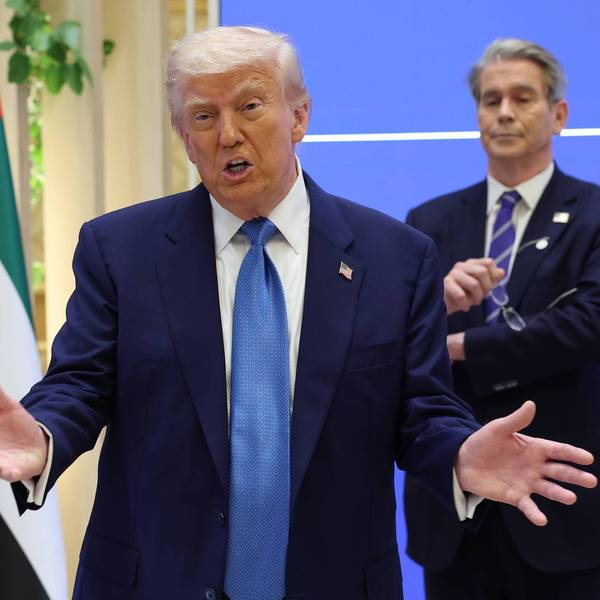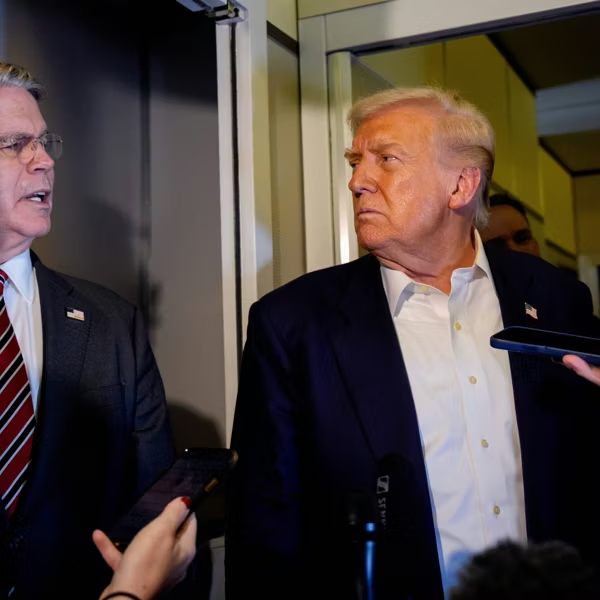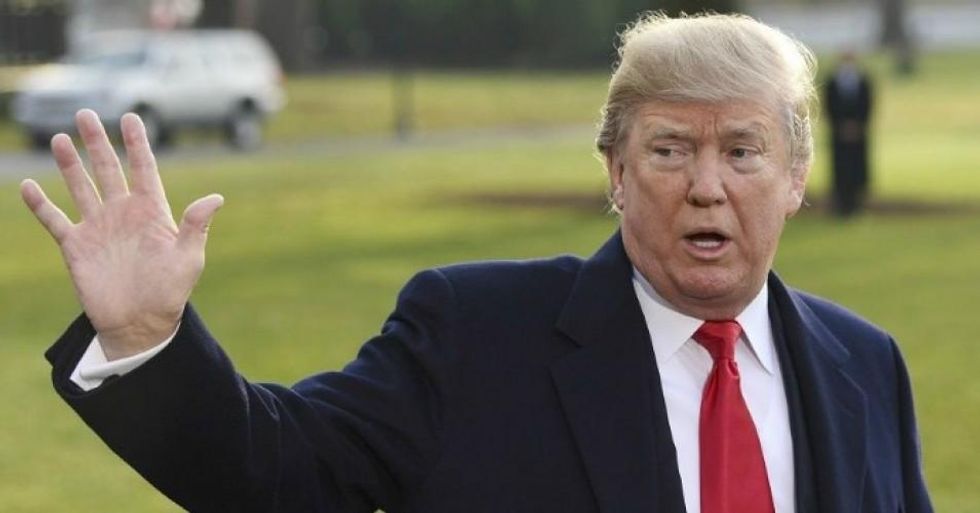Claiming the president has "absolute immunity" from legal action both in his official capacity and as a private individual, lawyers representing Donald Trump called on a federal court to toss out a lawsuit accusing him of violating the Constitution's Emoluments Clause by accepting payments from foreign governments at the Trump International Hotel in Washington, D.C.
Norm Eisen, former White House ethics official and chair of Citizens for Ethics and Responsibility in Washington, said that if the court accepts Trump's argument, it would effectively mean the president "is beyond the reach of the law."
Filed by the attorneys general of Maryland and the District of Columbia in June, the suit accuses Trump of committing "unprecedented constitutional violations" by refusing to "disentangle his private finances from those of domestic and foreign powers."
As the Associated Press notes,
Ethics experts had warned that this kind of situation could arise because Trump refused to divest from his financial holdings when he became president. Trump instead promised to turn over profits from foreign government business at Trump Organization properties to the U.S. Treasury. The first such annual payment was made earlier this year for $151,470 but the company would not say how that figure was determined.
In his court filing, Trump lawyer William Consovoy argued the Maryland-D.C. suit "has the potential to divert the president's attention from his official duties. The Supreme Court has concluded that the costs to the nation of allowing such suits to distract the president from his official duties outweigh any countervailing interests."
As AP reports, Consovoy also "argued that federal officials can only be targeted for accepting unconstitutional payments in their official government function and not as private citizens. But in the case of the president, Consovoy added, Trump is also 'absolutely immune' from legal action in his official capacity."




